China says President Hu to take part in nuclear summit in Washington this month
By APThursday, April 1, 2010
China’s Hu to attend nuclear summit in Washington
BEIJING — China’s president will attend a nuclear security summit in Washington this month, signaling a fresh start between the superpowers amid a chill in relations over Beijing’s unhappiness with U.S. arms sales to Taiwan and a meeting with the Dalai Lama.
China has also indicated a new willingness to discuss sanctioning Iran over its nuclear program, a U.S. official said, marking progress on another major dispute bedeviling ties.
It was unclear prior to Thursday’s announcement whether President Hu Jintao would attend the U.S.-hosted event because of a number of contentious issues that have soured American-Sino ties this year.
Hu will stop in Washington for the April 12-13 summit on his way to Brazil, Venezuela and Chile.
“The nuclear security summit will mainly discuss the threat posed by nuclear terrorism and the corresponding measures of countries and the international community,” Chinese Foreign Ministry spokesman Qin Gang said at a news briefing Thursday.
He called it an important multilateral meeting, and said China hoped it would “yield positive results.”
Qin would not say if Hu would meet President Barack Obama for bilateral talks during his visit. The spokesman said the U.S. and China shared a key diplomatic relationship, and maintaining healthy ties depended on “respecting each other.”
Hu’s trip was billed as specifically tackling nuclear issues. If all goes smoothly in the coming months, Washington plans to play host to Hu again in the fall with all the pomp of a state visit.
The Foreign Ministry called in U.S. Ambassador Jon Huntsman on Thursday morning to tell him Hu would attend the Washington summit — a positive message after weeks of being summoned for harangues over American policies.
“Where have we been in the last few months? We’ve been in the penalty box,” Huntsman told a meeting of U.S. business executives later Thursday. He predicted relations would now steadily improve.
However, two major problems still loom on the horizon. Pressure is rising in Washington for the Treasury Department to name China a “currency manipulator” for pegging the yuan to the U.S. dollar, making Chinese exports cheap, critics say. Beijing has warned it would retaliate for any such move, which could result in sanctions.
The Obama administration also wants a largely reluctant Beijing to stand with other permanent U.N. Security Council members in backing new sanctions on Iran — a key energy supplier to China — over its nuclear program.
U.S. State Department spokesman P.J. Crowley said “China has indicated a willingness to be a full participant as we go through the specifics of what would be in a resolution.”
Iran’s top nuclear negotiator, Saaed Jalili, met with senior Chinese officials Thursday, presumably lobbying China to hold firm after Beijing signaled in U.N. talks it was willing to consider new sanctions against Tehran.
Recent American moves have infuriated Beijing. China suspended military exchanges after a U.S. decision earlier this year to sell $6.4 billion in military hardware to Taiwan.
The sale of helicopters, missiles and other weapons came before Obama had a White House meeting with Tibetan spiritual leader the Dalai Lama, whom Beijing accuses of trying to separate Tibet from China. The countries have also tangled this year over trade disputes and cyberspying accusations from Google Inc.
Hard-liners in the Chinese military argued for punishing the U.S. by withholding cooperation on issues such as Iran and climate change.
“We’re pleased that China is coming to the event,” deputy White House press secretary Bill Burton told reporters on Air Force One. “We have an important relationship with China, one in which there are many issues of mutual concern that we work on together.”
Crowley, the State Department spokesman, echoed those comments. “This is a very important conference coming up … I think the fact that China has decided to have President Hu Jintao attend reflects their understanding of the importance.”
Zhu Feng, a professor with School of International Studies at Peking University, said Hu’s upcoming visit showed the countries were getting past their disagreements to focus on issues at hand.
“After having a period of tense and unpleasant experience in Sino-US relations, now both sides prefer to calm down to get the relations back to a pragmatic track,” he said.
In another about face, senior representatives of the Democrat and Republican parties were in Beijing this week for talks with the Communist Party. The Democrats were led by former party chairman Howard Dean and former Secretary of State Madeleine Albright. The Republicans were led by former U.S. special envoy to Sudan Richard Williamson.
The Americans met Wang Jiarui, who heads the Communist Party’s international affairs office. Vice President Xi Jinping also met the group and urged them to remove “disturbances” that might disrupt ties, Xinhua News Agency said.
While Britain’s Labour Party and other Western democratic parties have held such parleys before, the talks were the highest-level discussions ever between American and Chinese politicians, helping burnish the Communist Party’s international credentials.
After Washington, Hu will travel to South America from April 14-18. His stop in Brazil will include a meeting with leaders of Brazil, Russia and India. The four major emerging economies are seeking a greater say in the world economy, including a greater role in global financial institutions.
The talks will “help to enhance the overall voice and influence of burgeoning markets in developing countries,” Qin said.
Associated Press writer Charles Hutzler in Beijing contributed to this report.
Tags: Asia, Barack Obama, Beijing, Brazil, China, District Of Columbia, East Asia, Europe, Foreign Policy, Google, Greater China, Hu Jintao, Iran, Latin America And Caribbean, Middle East, North America, South America, Summits, Territorial Disputes, United Kingdom, United States, Western Europe
|
April 19, 2010: 8:24 pm
Interesting take on this subject. I will have to bookmark this site for future reference. |
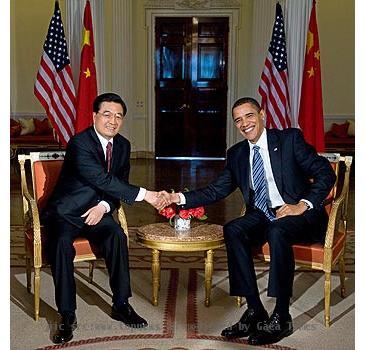
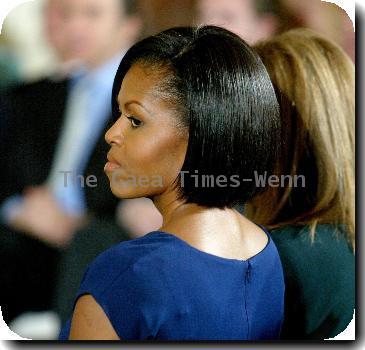


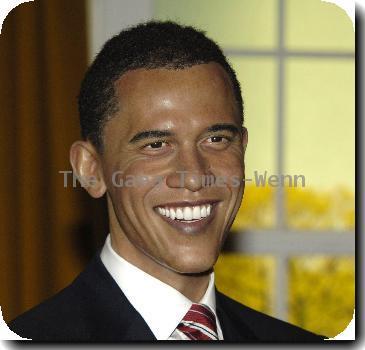


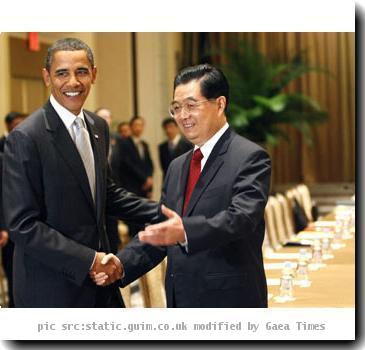
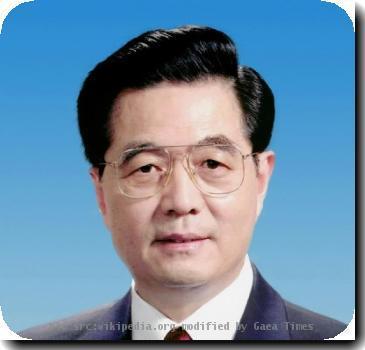
Gardener